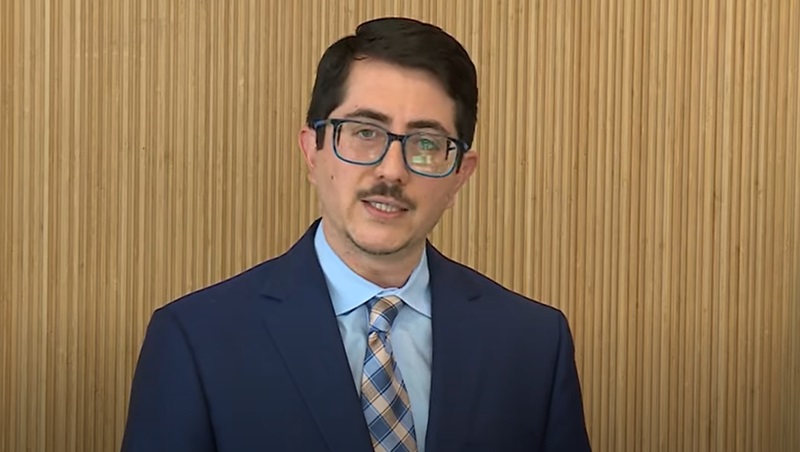

In police reform language, sometimes accountability seems to mean unforgiving, zero-tolerance criminal prosecution of police officers. The vast majority of times when a police officer’s decision is criticized by skeptics the facts, if allowed to be known and explored, weigh in favor of the officer.
An Austin, TX, police officer’s trial ended in a hung jury on a charge of murder. Travis County District Attorney Jose Garza, notorious for aggressive prosecution of police officers, has not announced at the time of this writing whether further prosecution will follow.
The case involved officer Christopher Taylor and suspected drug dealer Michael Ramos whom Taylor fatally shot in 2020. Police had responded to an apartment complex where a 911 caller had directed officers with a report that Ramos was doing drugs in a parked car and had a gun. Ramos began to drive away as officers arrived when Taylor, believing that Ramos was going to strike fellow officers with the fleeing vehicle, fired to stop Ramos.
Several videos showing Ramos’ trajectory, testimony that the caller was lying about the gun, and the fact that no other officer chose to fire their weapon, were all used by prosecutors to claim that Taylor was not justified in using deadly force. The jury, however, apparently aware of the dynamics of such a situation that officers faced that day, could not unanimously agree. Defense attorneys who understand and can communicate the milliseconds for decision-making in a time of deadly chaos can help a jury give the benefit of the doubt to the officer.
In Aurora, CO Nathan Woodyard, a police officer involved in the stopping of Elijah McClain in 2019, was found not guilty on charges of reckless manslaughter and criminally negligent homicide in McClain’s death. Officers had responded to a report of a suspicious person wearing a ski mask on an August night and acting “sketchy”. Woodyard was the first officer to contact McClain and in a subsequent struggle applied a carotid hold. McClain was given a shot of Ketamine by EMS personnel for “rapid tranquilization in order to minimize time struggling”, according to reports.
The 23-year-old McClain was placed in an ambulance suffered a heart attack and died a few days later. The defense argued that it was the Ketamine overdose that caused the death and not the officer’s actions.
A federal jury could not reach a verdict in the trial of former Louisville, KY officer Brett Hankison in connection with the shooting of Breonna Taylor in what has been labeled as a botched “no-knock” drug raid at her boyfriend’s apartment in 2020. After Taylor’s boyfriend, Kenneth Walker, fired a shot as the officers entered, hitting one of the officers in the leg, three officers shot back. Hankison fired 10 times but did not hit Taylor. He was charged with using excessive force that violated the civil rights of Taylor, her boyfriend, and the next-door neighbors where a stray shot entered their home causing no injury. He had previously been acquitted on state charges of endangerment.
The ACLU laments on its website that “In the 12 years between 2005 and April 2017, only 80 officers have been arrested on murder or manslaughter charges for on-duty shootings, according to work by Philip Stinson, an associate professor of criminal justice at Bowling Green State University in Ohio. The Washington Post reported that between 2015 and 2017 police shot and killed 2,884 people. Police shoot and kill numerous people every year and are hardly ever held accountable.” Context seems irrelevant to critics like the ACLU. Could it be that relatively few officers are criminally charged because the vast majority of police shootings are legally justifiable? Could it be that the scrutiny in use of force cases, despite the often trumpeted falsehood that there is no accountability, digests and analyzes the facts that clear officers in most cases?
Thankfully juries and appellate courts often see what prosecutors don’t want to see when cops are charged for actions in the line of duty.